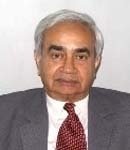Non-Proliferation: What Can India Do?
05 Jul, 2010 · 3181
PR Chari elaborates the significance of including India in international nuclear export control regimes
India is rightly considered a leader in the spheres of nuclear disarmament, non-proliferation, and similar efforts to establish a safer world. Official spokespersons have untiringly informed the world about India’s contributions here, e.g. Espousing the cause of general and complete disarmament, cessation of nuclear testing, and shunning the export of nuclear materials, equipment and technology. This salubrious record informed the United States in 2005 to negotiate the Indo-US nuclear deal and hammer it through the skeptical Nuclear Suppliers Group in 2008, thereby making India an exception to the international norm of not cooperating with non-signatories to the Nuclear Non-Proliferation Treaty (NPT). Further, India had challenged its basic premise by exploding nuclear devices in 1974 and 1998, setting itself forth as a nuclear weapon state. In truth, India’s policies underwent a subtle change after China exploded its first nuclear device in October 1964. Thereafter, India’s declarations continued to exhort the need for nuclear disarmament. But, secret efforts proceeded within its relevant establishments to derive nuclear weapons that culminated in the nuclear test series in May 1998. In other words, India distinguished between hortatory words and pragmatic actions, which drive external commentators to distraction.
National security interests have guided its refusal to enter the Nuclear Non-Proliferation Treaty, although the official reasons offered for its abstention are the inequality embedded in that Treaty, dichotomy between obligations and rights, inadequate commitment of the nuclear haves to eliminate their nuclear stockpiles and so on. President Obama has provided a new thrust now to the non-proliferation debate by pledging to strive for a ‘global zero,’ reduce the salience of nuclear weapons for national security, provide a new content to nuclear safety and security norms, declare a less qualified no-first-use doctrine and so on. Consequently, a readjustment in India’s non-proliferation policy is indicated, since pursuit of its time-honoured ploy of rhetoric and inaction is no longer defensible.
So, how could India balance its legitimate national security interests with pursuing a more credible non-proliferation policy? A conference to debate this precise question was held in Washington last month, bringing together specialists in nuclear politics and foreign affairs from the United States and India. It was appreciated that India cannot join the NPT without it being amended—a practical impossibility and that India would not join that Treaty as a non-nuclear weapon state on political considerations. Consequently, a major conclusion of that conference was that India should participate more fully in the nonproliferation system by entering the international export control groups and other arrangements that have been designed to restrain and control the spread of sensitive technologies. In practice, this requires India and the United States to:
• Agree in principle to bring India into the Nuclear Suppliers Group (NSG); the Missile Technology Control Regime (MTCR); the Wassenaar Arrangement (relates to the conventional arms trade); and the Australia Group (deals with chemical and biological agents);
• Harmonize India’s export control lists with that of the Wassenaar Arrangement and the Australia Group. This has been achieved in respect of the NSG and MTCR guidelines;
• Begin consultations with members of these export control regimes to explore how India might join them; and
• Address the impediments (political and legal) to India joining the Proliferation Security Initiative (PSI).
The advantages to the United States and India from the success of these initiatives hardly need belaboring. India has been recognized, incidentally by the Indo-US nuclear deal to be a “responsible state with advanced nuclear technology.” India’s entry into these regimes to formally join the global efforts to prevent the proliferation of nuclear weapons and, more broadly, weapons of mass destruction, would consolidate its ‘responsible state’ compliment. Moreover, India has traditionally been a votary of nuclear non-proliferation, despite not entering the NPT, joining the regimes to constrain nuclear proliferation would be a significant gesture. India’s entry into these regimes would also serve the American objective of revitalizing non-proliferation by drawing India within its discipline that possesses ‘advanced nuclear technology’, and technologies relevant to the manufacture of other weapons of mass destruction. This is especially important since India is widely believed to be on a growth trajectory that would make it among the world’s most advanced technological nations. Further, India’s inclusion within the PSI would draw its navy—the most powerful among the littoral countries of the Indian Ocean and among the largest in the world, into the global counter-proliferation strategy being pursued by the United States.
Naturally, much diplomatic hard work lies ahead for the United States and India to achieve these objectives and bring India into these international export control regimes that would strengthen the overall non-proliferation system. The reward would be more robust export control regimes and a more substantive contribution by India to their success.


